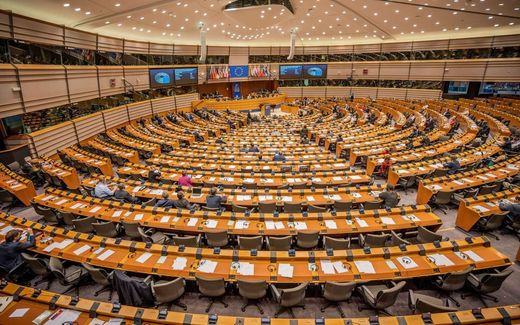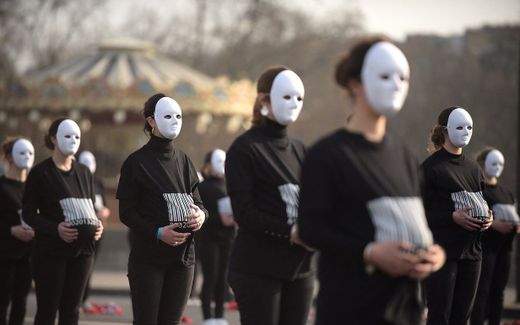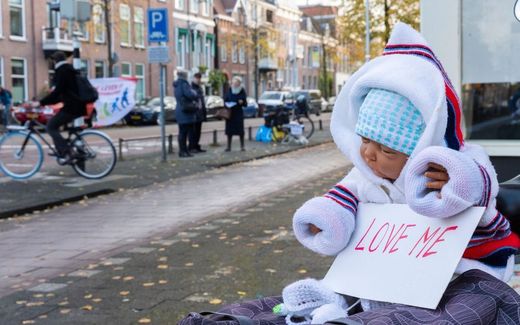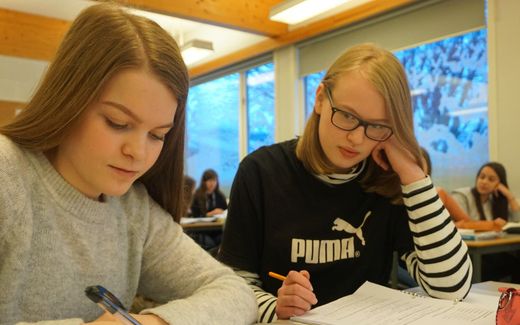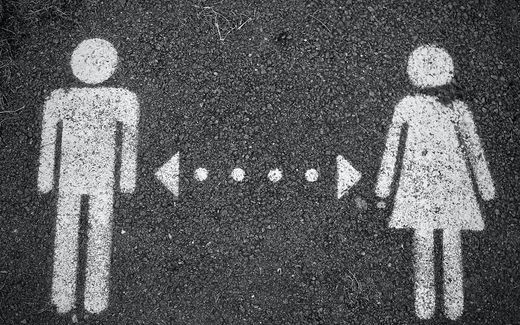CNE's Podcast: Antisemitism; Christians persecuted in Pakistan; and Natural Family Planning causes a rise in abortion

Photo CNE/Canva
European Union
NewsRound Europe is CNE’s news podcast. It has a bulletin with some remarkable news topics from the European continent. At the end, we have a question-and-answer session with a colleague about an article.
Antisemitism much higher than thought
There is much more antisemitism among us than we usually think. Almost half of the people have antisemitic views. This is the result of a survey conducted by Ipsos, covering 58,000 people from 102 countries.
The study found that 46 per cent of respondents held antisemitic beliefs. For example, 21 per cent of people believed the Holocaust was exaggerated, 4 per cent even denied that the Holocaust happened at all, and 20 per cent had never heard of the genocide.
Among younger people under 35, antisemitic views were particularly high, with only 39 per cent acknowledging the Holocaust as historically accurate. In the Middle East and North Africa, such views were most common, while they were least prevalent in Western Europe and Oceania.
Since 2014, antisemitism has more than doubled globally. Norway has fewer antisemitic attitudes, with only 8 per cent of adults holding negative views, but the trend is rising. Experts warn that antisemitism often increases during conflicts in the Middle East, especially due to a mistaken link between Jews and Israeli politics.
EU should put pressure on Pakistan
The European Union should put pressure on Pakistan to release Shagufta Kiran. This Christian mother of four was sentenced to death on the basis of the blasphemy laws. The EU envoy for human rights should give attention to this during his visit to Pakistan, later this month. This call comes from the two co-chairpersons of the Intergroup for religious freedom in the European Parliament, the Slowak Miriam Lexmann and the Dutch Bert-Jan Ruissen.
Christians are heavily persecuted in Pakistan. For this reason, the country is high in the Open Doors index. Blasphemy (and also alleged blasphemy) is punishable by death, says Ruissen in a statement. But still, the country receives 100 million Euros development money yearly.
A well-known case of a Christian that was sentenced to death in Pakistan was Asia Bibi. About ten years ago, there was worldwide pressure on the country to release her. In 2018, was acquitted by the Supreme Court.
Spain will try to block surrogacy
The Spanish government plans to revoke the regulations that facilitate the registration of babies born via surrogacy abroad.
Surrogacy is illegal in Spain, but a legal loophole has allowed the registration of these children upon arrival in the country. The Ministry of Justice intends to close this loophole by revising two current rules, following the Supreme Court's stance.
While surrogacy was banned in 2006, there has been a legal exception to ensure the child’s legal rights are protected. This exception is now being questioned, as critics argue that surrogacy exploits women.
In response, the government aims to replace these instructions with new guidelines that fully close the door on surrogacy practices. This change is in line with recent legal reforms recognising surrogacy as a form of reproductive violence against women.
The debate around surrogacy remains ongoing, especially within LGBT communities advocating for equal parental rights.
Natural Family Planning causes more abortion
What causes the increase in abortion figures the last years? In England and Wales, they think they have found at least a reason for this.
Research shows that more women in England and Wales are turning to fertility awareness apps instead of hormonal contraception. This might have led to an increase in abortions.
A study compared data from 2018 and 2023 and found that the use of "fertility awareness" methods (tracking menstrual cycles and ovulation through apps) rose from 0.4 per cent to 2.5 per cent. However, these methods are only 76 per cent effective at preventing pregnancy, compared to the 99 per cent effectiveness of the contraceptive pill.
The study also revealed that more women seeking abortions were not using any contraception at all, with the proportion increasing from 56 per cent in 2018 to 70 per cent in 2023. This shift is partly due to information on social media, presumptions about hormonal contraception, and difficulty accessing contraceptive methods.
Experts warn that using less reliable methods could lead to more unintended pregnancies.
More countries in Europe see an increase in abortion numbers during the last years. It is not always clear what the reason of this is. It might the same as in England.
Poland reduces religious education at schools
The new government in Poland will reduce the religious education in public schools from two hours every week to one hour. This will start next school year.
The country’s Education Minister, Barbara Nowacka, announced this change, stating that religious classes will only be held during the first or last lesson of the day. Participation in religious education is voluntary in Poland.
The Roman Catholic Church criticised this decision, as an agreement between Poland and the Vatican gives the Church some influence over education policies. Despite this, the centre-left government led by Prime Minister Donald Tusk passed the change without the church's approval.
The Polish Bishops' Conference plans to review the legality of the decision. The church had wanted all students in Poland to be offered either religious or ethics classes as part of the curriculum, but these subjects are currently optional, with ethics often not being available.
Of Poland’s 36 million population, 71 per cent is identifying as Roman Catholic.
End to only-girls' school in Switzerland
The Swiss Federal Court ruled that schools only for girls are discriminatory. This decision affects a private girls' school Sankt Katharina in Wil, St. Gallen in Switzerland.
The school, which offers free education to local girls, only accepts female students. The city of Wil wanted to change the contract with the school to allow boys and students from other educational tracks, but the city parliament rejected the idea.
Critics argue that all-girls schools are discriminatory because they offer a better education to girls while disadvantaging boys. The Catholic school also faces criticism from the court for not being religiously neutral.
Despite all this, many parents and students prefer the school’s single-gender environment, believing it helps girls focus and boosts their self-confidence.
Still, the court ruled that the school’s exclusive focus on girls violated anti-discrimination laws. If the city of Wil cancels the current contract, the school may have to close.
From the field of Christian education in Switzerland, the response was that no education is religiously neutral and that it is a right to have Christian schools.
Related Articles



